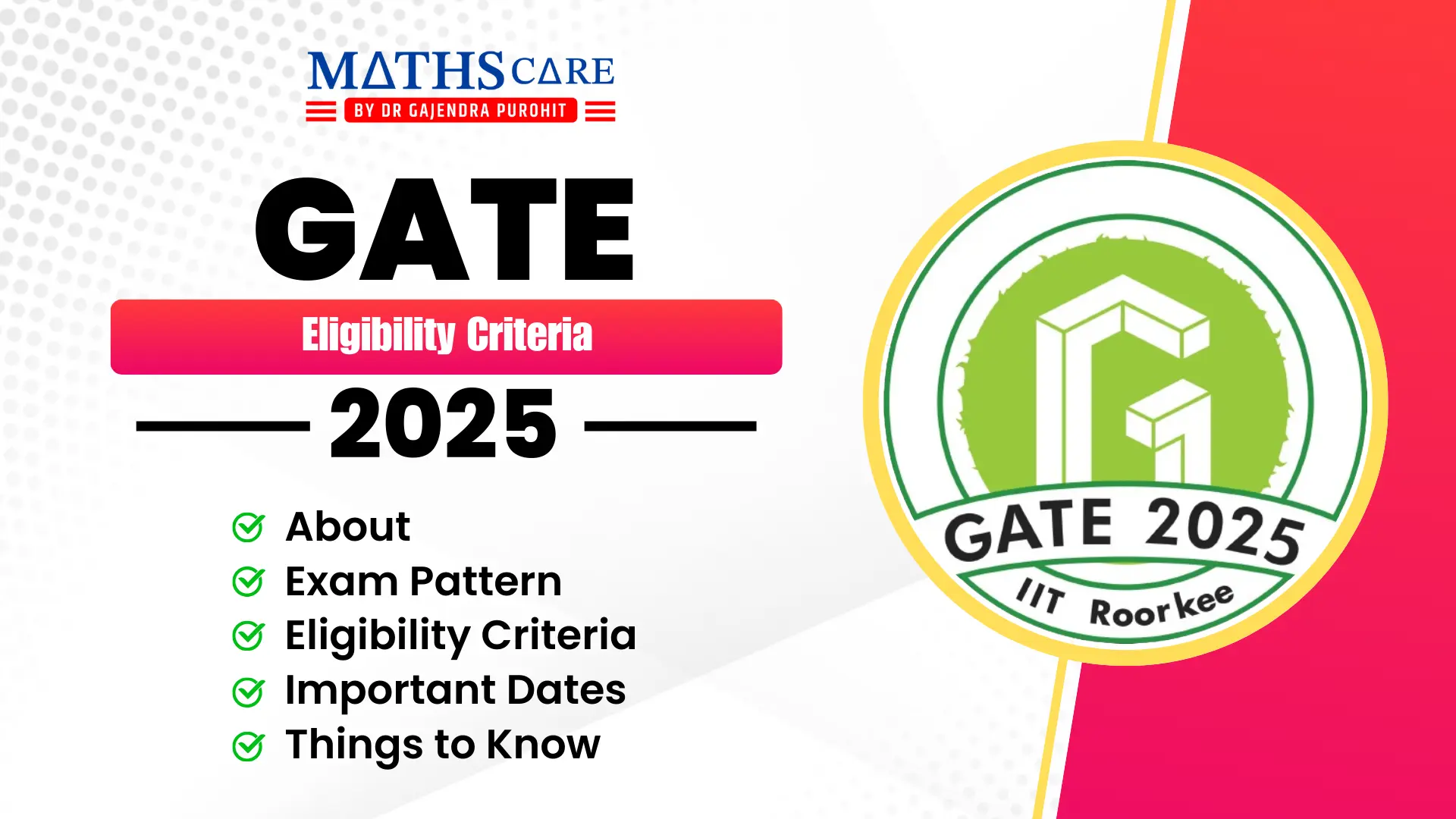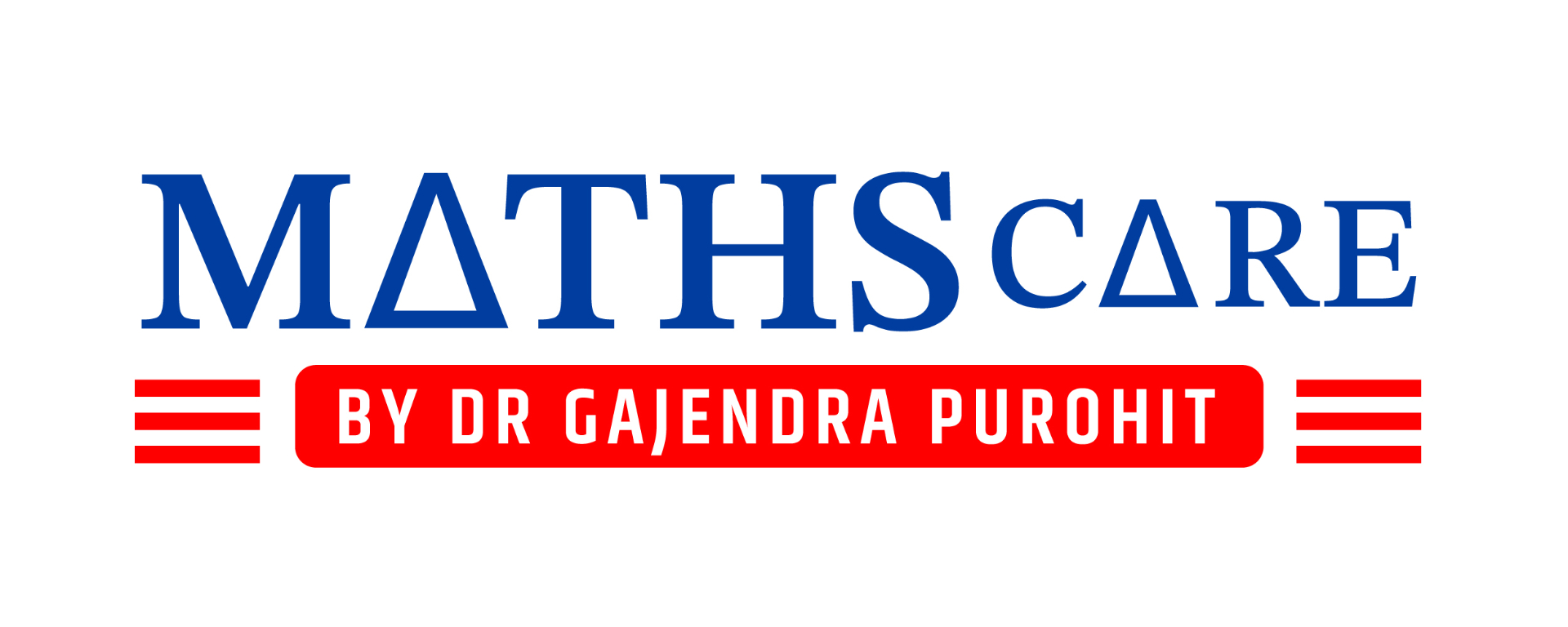CSIR NET Mathematics vs GATE Exam Mathematics
Competitive exams like CSIR NET and GATE are stepping stones for students and professionals looking to make their mark in the fields of mathematics, science, and engineering. Both exams cater to different aspirations and open up varied career pathways. For candidates aiming to excel in mathematics, understanding the differences, similarities, and the unique benefits offered by CSIR NET and GATE exams is vital for making an informed decision. In this detailed guide, we will explore these two prominent examinations, delve into their syllabi, discuss cutoff trends, compare career opportunities, and unveil a critical distinction that could influence your choice.

About GATE
The Graduate Aptitude Test in Engineering (GATE) is one of India’s most prestigious exams, held annually and designed to assess the comprehension of various subjects in engineering and science. The exam primarily caters to engineering graduates; however, GATE Mathematics has emerged as a popular choice among students who have completed their undergraduate studies in mathematics.
GATE Mathematics serves as a gateway for higher studies in M.Tech, MS, or PhD programs and provides opportunities to secure lucrative jobs in Public Sector Undertakings (PSUs). The exam covers a broad range of mathematical topics with a significant focus on applied mathematics and technical aspects. GATE Mathematics tests not only your theoretical knowledge but also your problem-solving abilities and analytical skills.
Objective of GATE Mathematics:
1. To test candidates’ understanding of mathematical theories and computational skills.
2 . To evaluate their readiness for higher education programs like M.Tech, MS, or PhD.
To provide a score-based recruitment mechanism for PSUs.
The GATE exam also scores candidates on a relative grading system, where marks are normalized to ensure fairness across different subject papers.
About CSIR NET
The Council of Scientific and Industrial Research National Eligibility Test (CSIR NET) is an examination conducted to determine eligibility for Junior Research Fellowship (JRF) and Lectureship in universities and research institutions across India. CSIR NET focuses on various disciplines in science, including Mathematical Sciences, which has become a preferred choice for candidates aiming for research careers and academic roles.
CSIR NET Mathematical Sciences is a more research-oriented exam that emphasizes understanding advanced mathematical concepts. It tests the depth of your mathematical knowledge, your aptitude for research, and your ability to teach complex topics. Qualifying for CSIR NET paves the way for research fellowships, PhD programs, and teaching positions at higher education institutions.
Objective of CSIR NET Mathematics:
To assess candidates’ readiness for a research career in mathematics.
To enable direct eligibility for Junior Research Fellowship (JRF).
To qualify candidates for Lectureship positions in Indian universities.
To evaluate the theoretical understanding and proof-based problem-solving skills.
The CSIR NET Mathematics exam is conducted twice a year, offering more frequent opportunities for aspirants.
Objective of CSIR NET Mathematics:
1. To assess candidates’ readiness for a research career in mathematics.
2. To enable direct eligibility for Junior Research Fellowship (JRF).
3. To qualify candidates for Lectureship positions in Indian universities.
4. To evaluate the theoretical understanding and proof-based problem-solving skills.
The CSIR NET Mathematics exam is conducted twice a year, offering more frequent opportunities for aspirants.
Syllabus: Similarities and Differences
While CSIR NET and GATE Mathematics exams have overlapping content, they serve different purposes, leading to variations in their syllabi. A thorough comparison reveals both similarities and distinct areas of emphasis.
Similarities:
Calculus: Both GATE and CSIR NET cover calculus extensively, including topics like differential calculus, integral calculus, and multivariable calculus. The application of calculus is crucial in solving various mathematical problems in both exams.
Linear Algebra: Essential topics such as vector spaces, matrices, eigenvalues, eigenvectors, and linear transformations are included in both syllabi. Linear algebra is vital for solving problems in multiple mathematical and engineering domains.
Ordinary Differential Equations (ODE): Techniques for solving different types of ODEs, including first-order and higher-order differential equations, appear in both GATE and CSIR NET Mathematics.
Real Analysis: Fundamental concepts like sequences, series, continuity, differentiability, and integration are common in both exams, though the depth of questions may differ.
Differences:
GATE Mathematics: The syllabus includes applied topics such as numerical methods, transform theory, optimization, and engineering mathematics. These subjects are often used to solve practical engineering problems, making GATE Mathematics suitable for candidates interested in applied fields.
CSIR NET Mathematics: It leans heavily towards pure mathematics, with an emphasis on topics such as functional analysis, abstract algebra, topology, and measure theory. The exam tests candidates’ ability to understand complex mathematical proofs and theoretical concepts.
Probability and Statistics: While GATE covers standard probability distributions and statistical methods, CSIR NET delves into more advanced topics like measure-theoretic probability, stochastic processes, and statistical inference.
Complex Analysis: This topic is explored in much more detail in CSIR NET compared to GATE, with a focus on complex integration, Cauchy’s theorem, residue calculus, and applications.
Cutoffs: A Comparative Look
The qualifying cutoffs for CSIR NET Mathematics and GATE Mathematics exams differ due to the structure and nature of the exams, as well as the varied expectations from candidates.
CSIR NET Mathematics Cutoffs (June 2024)
UR (General): 117.75
EWS: 101.5
OBC: 99.5
SC: 74
ST: 61.25
PwD: 50.75
CSIR NET’s higher cutoffs reflect the exam’s challenging nature, assessing candidates’ research aptitude, advanced mathematical knowledge, and problem-solving skills.
GATE Mathematics Cutoffs (2024)
General: 25 marks
OBC/NCL & EWS: 22.5 marks
SC/ST/PwD: 16.6 marks
The GATE Mathematics cutoffs are comparatively lower because the exam assesses basic mathematical aptitude and problem-solving skills applicable across engineering and sciences. However, to secure a spot in top-tier institutes like IITs, candidates usually need to score 45+ marks for IITs and 40+ marks for NITs.
Career Paths: Where Do They Lead?
Both CSIR NET and GATE Mathematics exams open up different career avenues, although there is some overlap in the opportunities they provide. Here’s how each exam can shape your career:
CSIR NET Mathematics
Junior Research Fellowship (JRF): Qualifying for JRF enables candidates to start their research career immediately with financial aid. Research fellows receive a stipend, which allows them to focus on research without financial constraints.
Lectureship: Qualifying for the Lectureship paves the way for teaching positions in Indian universities and colleges. Candidates can teach mathematics at the undergraduate and postgraduate levels.
PhD Programs: Qualifying for CSIR NET can make it easier to secure admission to PhD programs in mathematics. Additionally, candidates may receive financial assistance and fellowships during their PhD.
GATE Mathematics
Higher Studies (M.Tech, MS): GATE scores can be used to secure admission in M.Tech or MS programs at premier institutes such as IITs, NITs, and IISc.
Public Sector Jobs: Several PSUs recruit candidates based on GATE scores, offering lucrative job roles. However, these positions may focus more on applied mathematics and engineering aspects.
PhD Admissions: GATE Mathematics scores can be used for PhD admissions, although candidates might need to meet additional criteria to be eligible for JRF.
GATE vs CSIR NET : The Catch
While both CSIR NET and GATE provide excellent opportunities, there is a significant difference in how they approach Junior Research Fellowship (JRF) eligibility.
CSIR NET Advantage:
Direct JRF Eligibility: Candidates who qualify for CSIR NET are directly eligible for JRF, which means they can start their research work without any delay.
Financial Assistance: JRFs receive stipends from government-funded research projects, making research careers more financially feasible.
GATE Path:
PhD Requirement: Unlike CSIR NET, qualifying for GATE does not directly make candidates eligible for JRF. Candidates must first secure admission to a PhD program, after which they can apply for research fellowships.
Financial Aid Linked to Programs: While financial support is available, it often depends on the specific PhD program or research project.
The ability to begin research immediately after qualifying for CSIR NET makes it an attractive choice for those committed to a research career, whereas GATE is better suited for candidates interested in higher studies or industry roles.
Conclusion
Choosing between CSIR NET Mathematics and GATE Mathematics largely depends on your career goals and interests. If your passion lies in pure mathematics and academic research, the CSIR NET exam is likely the best path for you, thanks to its emphasis on theoretical concepts and direct JRF eligibility. On the other hand, if you prefer applied mathematics, wish to pursue a career in engineering, or aim for public sector jobs, then GATE Mathematics could be the ideal choice.
Evaluate your strengths, aspirations, and the type of career you want before making a decision. Remember, both exams require rigorous preparation and dedication, but the right choice will align with your long-term goals and interests.
GATE FAQS
Am I eligible for GATE 2025 as a 3rd-year B.A./B.Com./B.Sc. student?
Yes, 3rd-year or higher-year students from any approved undergraduate program can appear for GATE 2025.
I entered B.E. through lateral entry after a diploma. Can I apply for GATE 2025?
Yes, any student in 3rd year or above in a recognized undergraduate course can apply.
Is there an age limit to apply for GATE 2025?
No, there is no age limit to appear for GATE 2025.
What is GATE Exam form fees?
The application fee is Rs. 900 for female, SC, ST, and PwD candidates, and Rs. 1800 for general category candidates. To apply for GATE exam, candidates must meet the specified GATE exam eligibility criteria, which have been outlined in the information brochure.
Who is going to conduct GATE 2025?
GATE 2025 is being organised by Indian Institute of Technology Roorkee (IITR).
Is the GATE result out for 2024?
The GATE 2024 result was released on March 16, 2024, by IISc Bangalore. Candidates can access their results through the GOAPS portal at gate2024.iisc.ac.in. Alongside the result, cutoffs and merit lists were also published for various branches.
BEST OFFERING COURSES FOR YOU
BEST BOOKS FOR IIT JAM/ CSIR-NET
BUY BOOKS ON OUR APP
RECENT POSTS

GATE 2025 Admit Card Release Date

GATE 2025 Strategy for Last Month

GATE Eligibility Criteria 2025








